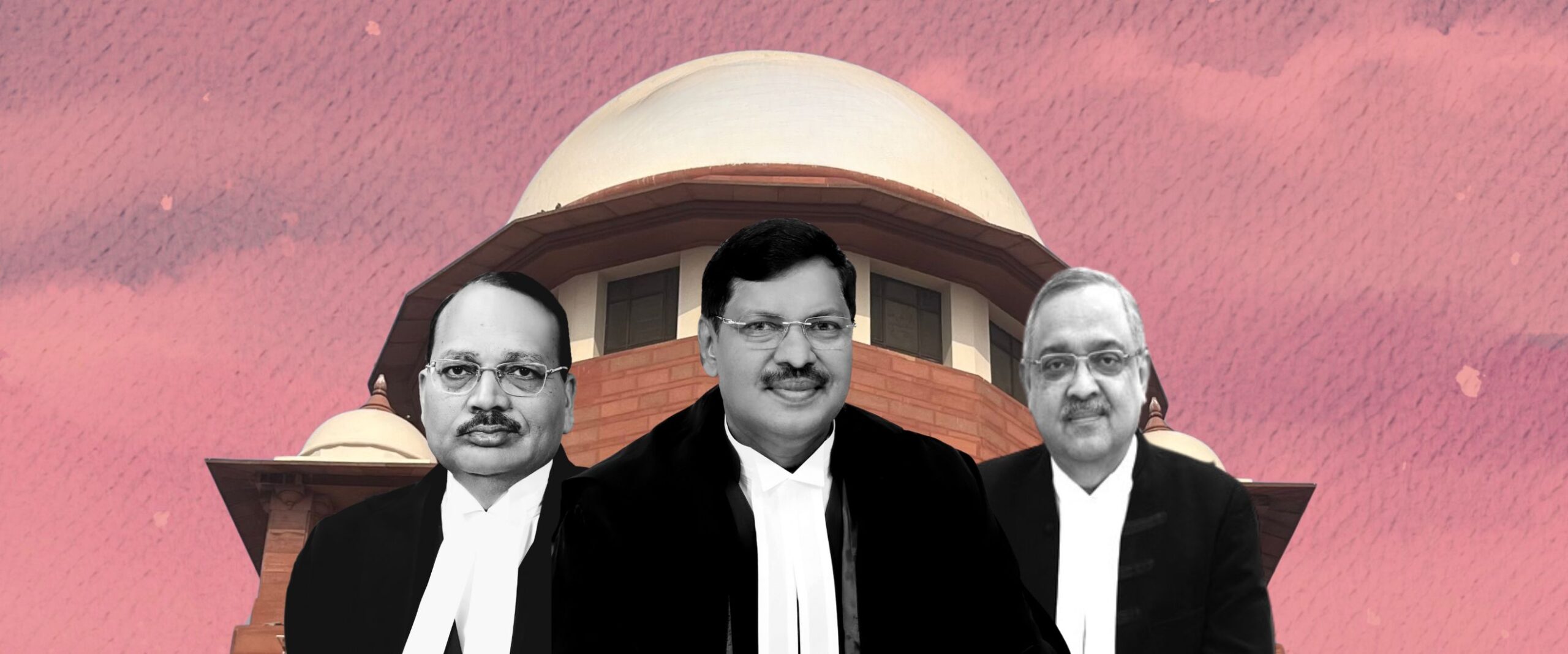Analysis
“My heart is full” says CJI B.R. Gavai as Supreme Court Bar bids farewell
As CJI Gavai’s tenure draws to a close, a ceremonial bench shared poetry, fond recollections and gratitude

Today, the Supreme Court gathered in a ceremonial bench to bid farewell to the 52nd Chief Justice of India, B.R. Gavai. Members of the Bar and Bench recalled his calm courtcraft, his clarity in judgments and his instinctive accessibility to junior lawyers.
What the Bar Saw
Attorney General R. Venkatramani began by observing that in Marathi, the name Bhushan means ‘alankar’. Reading out a poem, he said that the CJI brought that quality to the law.
Solicitor General Tushar Mehta described CJI Gavai as a judge whose humanity never shifted as his responsibilities grew. He noted that a ‘swadeshi’ approach had shaped the Court’s past six months. While Senior Advocates Archana Dave, C.U. Singh and Vibha Makhija expressed similar appreciation, CJI Gavai added that yesterday’s judgement in the Presidential reference “did not refer to a foreign judgment.” Mehta welcomed this shift and remarked that a judgement should remain a judgement and not resemble a law review.
Additional Solicitor General Aishwarya Bhati said women lawyers never felt any distinction in his Court and were treated equally.
Supreme Court Bar Association President Vikas Singh recalled CJI Gavai’s habit of travelling to his village without security and his remark that “if someone kills me in my village, I do not deserve to live.” He also recalled CJI Gavai’s comment that any increase in the retirement age should take place only after he leaves office because a judge’s service conditions cannot be changed to his disadvantage.
Senior Advocate Kapil Sibal called the tenure “a milestone” and contrasted it with the elitist court he entered in the 1970s. “You tamed the tigers who dared to roar,” he said, reciting in full a poem he wrote that morning.
Senior Advocate Mukul Rohatgi recalled their long association and CJI Gavai’s “robust practical sense.” He noted that the CJI had never used a hostile word against the younger Bar. Rohatgi urged the CJI to remain in Delhi and frequent the court for a coffee every now and then.
What the Bench Saw
Justice K.V. Chandran said it was a privilege to share the Bench with CJI Gavai and noted that he had “an extra ear for every junior lawyer.” He recalled that although the CJI occasionally warned lawyers about costs, he never imposed them.
Chief Justice designate Surya Kant described the moment as the closing of a chapter. He traced his association with CJI Gavai back to 2003 and noted that a single remark from him could shift the energy of the room.
Parting words from Chief Justice Gavai
CJI Gavai began by describing his 41-year journey from a “student of law” to a “student of justice.” He spoke of his father and Dr. B.R. Ambedkar’s influence, and quoted Lord Denning to say that he did not know much about the law but was more interested in justice. “A judge should iron out creases without altering material,” he said, emphasising that he never outsourced his judgments because they must be written for the end reader.
He referred to improvements in listing, thanked his colleagues, his staff and his 18 law clerks. He said he was leaving the court hall “with a full sense of satisfaction and contentment.”
CJI Gavai made his exit with a familiar refrain, “Thank you very much.”